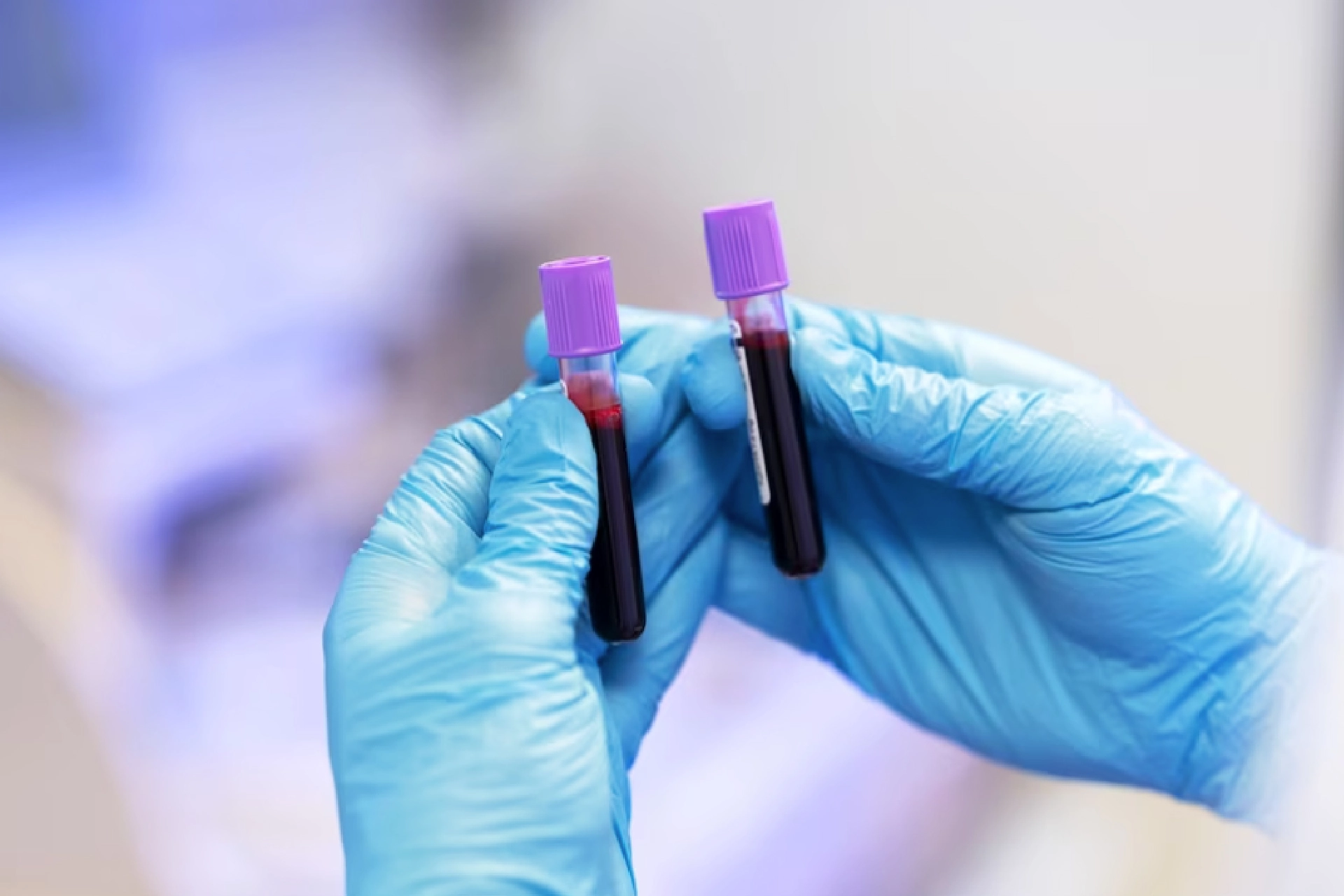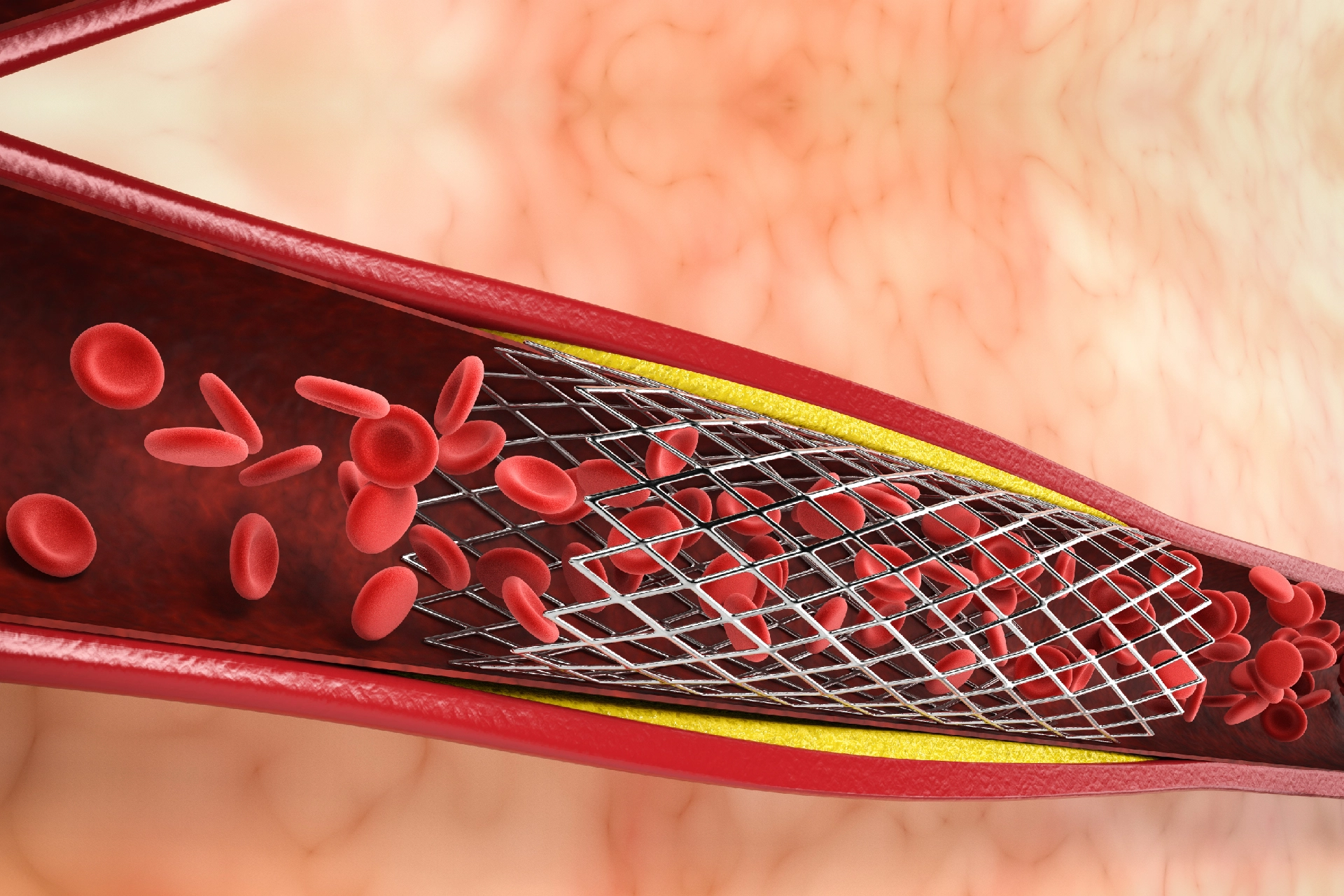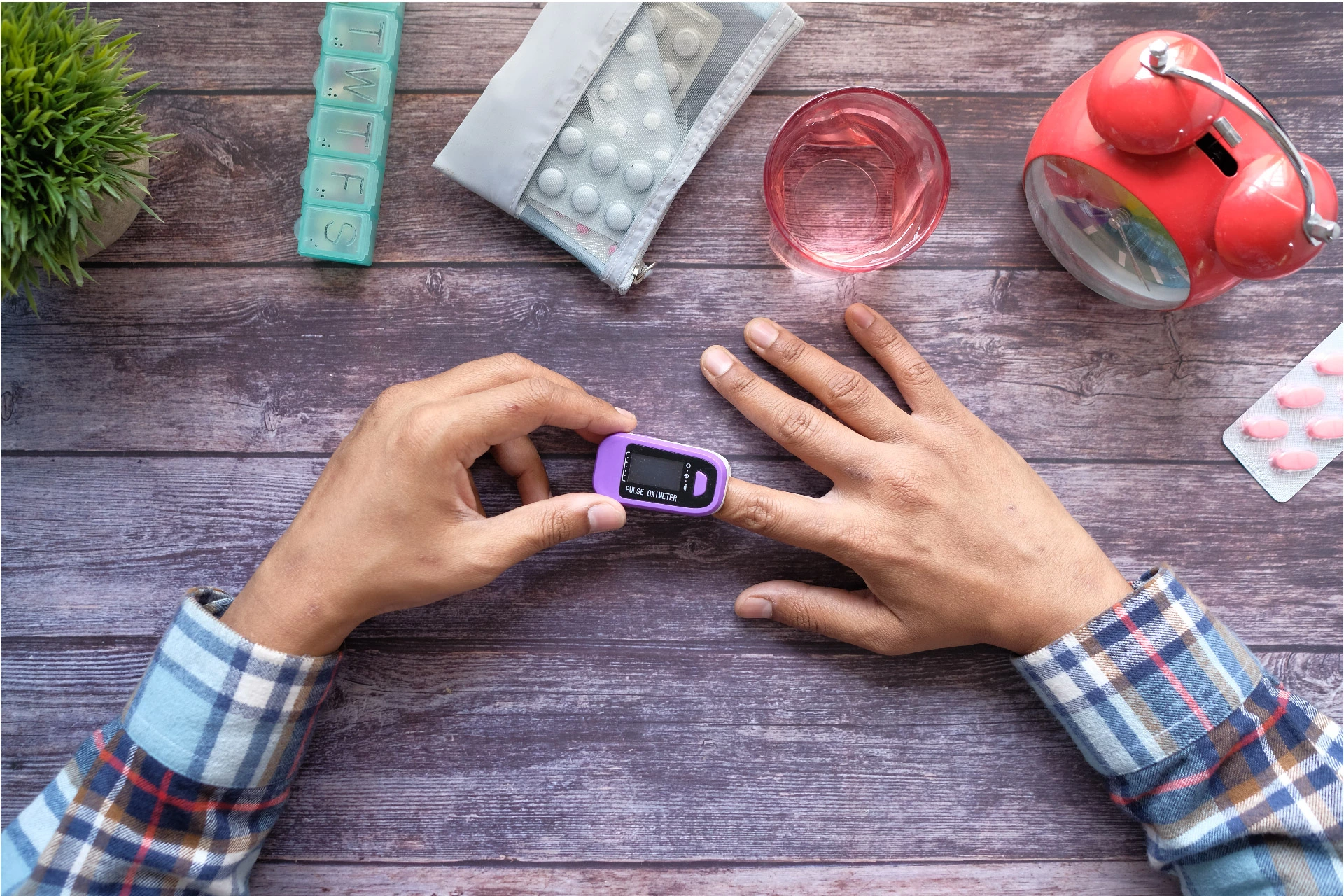Health Tests | 10 min read
CRP Test: Mean, Procedure and Normal Range
Medically reviewed by
Table of Content
Key Takeaways
- The CRP normal value is always less than 1mg/dL
- High CRP levels indicate inflammation in your body
- The CRP test is a type of COVID test doctors may prescribe
When there is inflammation in your body, the liver produces a substance called CRP or C-reactive protein. The CRP test also known as C-reactive protein test is used to detect the presence of this protein in the blood. Elevated CRP levels in your blood is an indicator of inflammation. It can occur for a range of conditions from infections to cancer. It is our body’s mechanism of protecting tissues during the course of an infection.
Even when there is swelling in your arteries, your blood may contain high levels of CRP. If not diagnosed on time, this can cause a heart attack. Usually, the normal CRP levels in your body are low. A CRP test means a test that is done to check the levels of CRP in your blood. This CRP test is a non-specific test as your CRP levels may increase during any inflammatory condition. The C-reactive protein test has also been used as a type of COVID test.
Read on to understand more about this test and its importance.
Additional read: Detect and Diagnose COVID-19
C-Reactive Protein (CRP) Test Mean
A C-reactive protein (CRP) test estimates the level of C-reactive protein — a protein secreted by your liver into your bloodstream in reaction to inflammation.
When your body experiences a distress agent (ex., viruses, bacteria, or toxic chemicals) or you come across an injury, it triggers your immune system. Your immune system transmits out its first responders - inflammatory cells and cytokines. These cells initiate an inflammatory reaction to trap bacteria and other distressing agents or begin mending injured tissue. This can result in aches, swelling, bruising, redness, or inflammation.
You generally have low levels of CRP in your blood. Moderately to harshly raised levels may be an indication of a severe infection or other inflammatory condition.

CRP Test Range Mean
The CRP test results may be notified in milligrams per liter (mg/L) or milligrams per deciliter (mg/dL).
- 0.6 mg/L or less than 3 mg/dL: Normal CRP level observed in fit people
- 3 to 10 mg/L (0.3 to 1.0 mg/dL): Normal to medium inflammation (this CRP range is usually noticed in individuals who are obese, pregnant, smoke, or have diseases like diabetes or the common cold)
- 10 to 100 mg/L (1.0 to 10 mg/dL): Full-body inflammation as a result of autoimmune disease, bronchitis, pancreatitis, heart attack, cancer, or another cause
- Over 100 mg/L (10 mg/dL): Observed full-body inflammation due to critical bacterial infections, acute viral ailments, systemic vasculitis, or significant trauma, among other causes
- Over 500 mg/L (50 mg/dL): Extreme body-wide inflammation, most frequently due to harsh bacterial ailments
CRP Test Normal Range
CRP values are always measured in mg/L, where mg is milligrams of CRP in one liter of blood. The CRP normal range is always below 1mg/L. This also ascertains the fact that you are at low risk for acquiring cardiovascular diseases. If values exceed the CRP test normal range, it indicates that there is some inflammation that may require medical intervention. If the values lie between 1-2.9mg/L, you may be at intermediate risk for heart ailments. However, if your values shoot up beyond 3mg/L, there is a higher risk of cardiovascular diseases. In case the value increases more than 10mg/L, this is an indication of significant inflammation. In such cases, there are chances that you may have been infected with conditions like:
- Tuberculosis
- Cancer
- Pneumonia
- Autoimmune diseases
- Bone infections
It is not always necessary that high CRP levels always indicate inflammation. These values also increase if you are taking birth control pills. Therefore, it is always better to speak to your doctor to understand your health conditions.
Why Should You Do CRP Test?
A CRP test is used to detect certain health conditions that can cause inflammation in your body. A few of these conditions are as follows:
- Infections occurring in the bone
- Autoimmune disorders
- Fungal infections
- Bacterial infections
- Inflammatory bowel disease
A CRP test helps in assessing cardiovascular diseases as it detects inflammation in your body. The reason for this inflammation is the increase in LDL levels. This causes plaque deposition in your arteries resulting in damage of arteries. To counteract this damage, your body produces certain proteins, one of which is CRP. With C-reactive protein, high counts indicate that you are suffering from heart ailments that may require further evaluation.
Purpose Of The CRP Test
The CRP test is conducted to decide if someone's symptoms are linked to an inflammatory or non-inflammatory illness. It can also disclose if the inflammation is imperative (intense and sudden, accompanied by an allergic reaction) or chronic (continuous, such as with diabetes).
Although there are restrictions to what the test can expose, it is a fairly steadfast method to estimate inflammation. The higher the CRP levels, the more prominent the amount of inflammation in the body.
The CRP test can help determine a wide range of medical conditions, including:
- Allergic reaction
- Asthma
- Autoimmune diseases like rheumatoid arthritis and lupus
- Bacterial infection
- Bronchitis
- Cancer
- Connective tissue disorder
- Diabetes
- Heart attack
- High blood pressure (hypertension)
- Inflammatory Bowel Disease (IBD)
- Pancreatitis
- Pneumonia
- Viral infections
A CRP test is, at times, also done to denote the advancement of COVID-19. Studies have uncovered that people with COVID-19 with higher CRP levels have a higher chance of developing severe disease. Lastly, it can also foreshadow an individual's chance of experiencing a heart attack and stroke.
CRP Test Process
You don’t need to fast before getting a CRP test done. Blood is extracted from your vein with the help of a small needle. You may experience a slight bruise or pain in the spot where the needle is inserted. This blood is collected in a small vial, which is later sent to the lab to assess CRP levels. The whole test can be completed in 5 minutes. In some cases, you may also experience dizziness. This gets better after a little while.
During The CRP Test Process
The CRP test may be done by a lab technician, a nurse, or a phlebotomist (a specialist who is distinctly acquainted with drawing blood.)
Pre-Test
You may have to fill out some regular paperwork before your test is conducted. The receptionist will get you started once you check in.
Throughout the Test
The CRP test requires just a few minutes. Once you are called inside the laboratory, you will have to sit down, after which the person drawing the blood will prepare to draw the blood from one of your arms.
After a vein, generally, one near the crook of your elbow is preferred. Then the blood draw is performed as follows:
- An elastic band is fastened around your upper arm to allow the vein to swell.
- The skin is swept with a cotton swab containing alcohol.
- A fine needle is inserted into the vein. You may sense a minor pinch or poke. If the pain is unbearable, let the technician know.
- Blood is drawn into a vacuum tube through a fine tube joined to the needle.
- After sufficient blood is drawn, the elastic band is removed, and the needle is withdrawn.
- Pressure is placed on the prick site with a cotton swab, right after which an adhesive bandage is applied.
Post-Test
Once the blood draw is done, you are all set to depart. If you feel dizzy or faint, talk to the technician or a lab member.

After CRP Test Process
When you have completed having your blood drawn, you can continue with your regular activities.
In rare cases, there may be swelling, bruising, or discomfort at the injection site; the side effects generally are mild and go away within a span of a few days. In case they don't or get worse, consult your healthcare provider.
The results of a CRP test are normally produced within a day or two, depending on the lab. The results of a CRP test are categorized as follows to suggest a sense of an individual's stake in a cardiac attack or stroke.
- Low risk: Lower than 1.0 mg/L
- Average risk: 1.0 and 3.0 mg/L
- High risk: Above 3.0 mg/L
CRP Test Risks Factor
There are extremely infrequent risks connected with blood tests. You may experience bruising, swelling, or a hematoma (an accumulation of blood underneath the skin) after the blood is drawn.
Some people feel dizzy, light-headed, or even faint. And there is a mere negligible risk of infection from the needle insertion.
Before the Test
Before getting a CRP test, inform your healthcare provider regarding any medications you consume, as some can affect the CRP levels in your body.
Place and Time
The CRP test can be done in your doctor's office, at a local hospital or clinic, or at a reliable lab amenity. This procedure usually takes less than five minutes, after which you are free to leave.
What to Wear
It is advisable to wear a short-sleeved shirt for drawing blood. Do not wear tight sleeves that are tough to roll or push up.
Food and Beverage
You do not need to fast for a CRP test beforehand. However, additional blood tests may be conducted at the same time that does, such as a fasting cholesterol test. Consult with your healthcare provider or the lab to be on the safer side.
Price and Health Insurance
A CRP test is relatively inexpensive—depends from place to place. If you own health insurance, your plan should wrap the cost at least in part.
What to Bring
Bring any type of ID (such as your driver's license) as well as your insurance card and an authorized form of payment, if required. Review with the lab in advance to discover what types of payment they accept.
High CRP Level Mean
If you have a severely high CRP level, it likely indicates that you have some kind of inflammation. But a CRP test cannot reveal the grounds of the inflammation or where it is located in your body. Due to this, your healthcare provider will presumably mandate supplemental tests if your result exhibits a high CRP level.
- A CRP test result of either 1.0 to 10.0 milligrams per deciliter (mg/dL) is usually considered moderately high. This result may exhibit any of the following conditions:
- Rheumatoid arthritis (RA), systemic lupus erythematosus (SLE)
- Heart attack (myocardial infarction)
- Bronchitis
- Pancreatitis
- A CRP test result of more than 10 mg/dL is typically deemed as a marked elevation. This result may indicate any of the following conditions:
- Acute bacterial infections
- Viral infection
- Major injury
- Systemic vasculitis
- A CRP test result of more than 50 mg/dL is commonly considered extreme elevation. Results over 50 mg/L are often linked with acute bacterial infections.
Low CRP Level Mean
After the normal CRP level is normally less than 0.9 mg/dL, there is no such thing as a lower-than-normal CRP level.
If you earlier had a high CRP result and directly experienced a lower result, it presumably signifies your inflammation is declining and/or your therapy for the inflammation is functioning.
When Should You Be Getting Tested For CRP?
It is better to undergo a CRP test if you notice the following symptoms of either bacterial or viral infection :
- Rapid beating of the heart
- Sudden chills
- Fever
- Vomiting
- Rapid breathing
- Nausea
In case you have contracted an infection, this test can also help you monitor your treatment. The CPR values fluctuate depending on the extent of inflammation. If your values decrease, it indicates that the treatment you are undergoing for inflammation is effective.
Additional read: What a Full Body Test Entails
A CRP test is a marker for various inflammatory conditions and a good way to detect heart ailments too. So, get yourself tested when you notice unusual symptoms. Proper diagnosis at the right time can prevent your health conditions from getting worse. For assessing your CRP levels, book health tests on Bajaj Finserv Health. Have your blood samples collected from home and get the reports online. Be proactive about your health with Bajaj Finserv Health and get your blood checked without any delays.
References
- https://www.ncbi.nlm.nih.gov/books/NBK441843/
- https://medlineplus.gov/lab-tests/c-reactive-protein-crp-test/
Disclaimer
Please note that this article is solely meant for informational purposes and Bajaj Finserv Health Limited (“BFHL”) does not shoulder any responsibility of the views/advice/information expressed/given by the writer/reviewer/originator. This article should not be considered as a substitute for any medical advice, diagnosis or treatment. Always consult with your trusted physician/qualified healthcare professional to evaluate your medical condition. The above article has been reviewed by a qualified doctor and BFHL is not responsible for any damages for any information or services provided by any third party.



